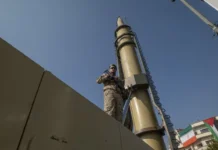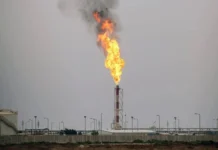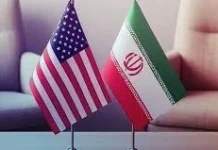Iraq’s Oil Ministry Must Prepare for the Forced Exit of Russian Companies
The recent UK, EU, and US sanctions against major Russian oil companies — Lukoil and Rosneft — could soon cause serious trouble for Iraq’s oil sector. These sanctions don’t just target Russia; they directly affect Iraq’s ongoing energy projects and long-term plans.
⚠️ Sanctions are forcing Russian companies out
The US Treasury Department’s OFAC has ordered Lukoil to sell all its international assets by November 21, and even rejected a proposed deal with Gunvor. This puts Iraq in a difficult spot because Lukoil and Rosneft are deeply involved in the country’s upstream oil production.
If these companies are forced to pull out, Iraq could face delays, disruptions, and even loss of investment — unless the Ministry of Oil (MoO) acts quickly to handle the transition.
In short, time is running out, and Iraq needs a plan before November 21.
🛢️ Why this matters for Iraq
Both Lukoil and Rosneft are massive, integrated oil giants with operations covering everything — from drilling and refining to running gas stations. Each of them has dozens of subsidiaries and partner companies across the globe, meaning the impact of these sanctions will spread fast and wide.
And it’s not just about these two companies. If Gazprom becomes the next target — which many analysts expect — Iraq’s exposure to Russian firms will grow even riskier.
These sanctions are part of a bigger geopolitical power struggle, mainly aimed at pressuring Russia over the war in Ukraine. But for Iraq, it’s not about politics — it’s about keeping its oil sector stable and functioning.
⛽ Iraq’s projects are in the danger zone
Lukoil, Rosneft, and Gazprom are all active in Iraq through major oil and gas projects. These companies have invested heavily and brought technical expertise that’s hard to replace overnight.
If they are forced to leave:
- Production could slow down or stop in affected fields.
- New drilling and expansion plans may be delayed.
- Iraq could lose billions in future revenue.
- The Kurdistan Regional Government (KRG) might face separate disruptions due to its own contracts with Rosneft.
While the federal MoO and the KRG are affected differently, both will feel the pressure once sanctions fully hit.
🧭 What the Oil Ministry should do now
To protect Iraq’s energy sector from a sudden shock, the MoO needs to move fast and think strategically. Here’s what should happen:
- Create a transition plan
Iraq must be ready for Lukoil and Rosneft’s exit. That means identifying replacement partners — possibly from neutral or friendly countries — and setting up contingency teams to ensure production doesn’t collapse. - Negotiate temporary extensions
The government should talk directly with OFAC and other sanctioning bodies to request limited exemptions or transition periods. This would give Iraq time to restructure contracts and operations. - Seek new investment partners
Iraq could open discussions with Asian or Middle Eastern energy firms, such as those from China, India, or the UAE, to take over stakes or co-manage projects currently led by Russian firms. - Secure legal and financial protection
Any sudden withdrawal or forced sale could trigger contract disputes. The MoO should prepare legal defenses and alternative financing to prevent long-term damage. - Enhance national capacity
Iraq should also take this as a chance to build its own technical and operational expertise, reducing reliance on foreign partners over time.
🧨 The bigger risk
These sanctions highlight a larger problem: Iraq’s heavy dependence on a few major foreign players. When those players are hit by global politics, Iraq ends up paying the price.
The MoO needs to start seeing this as a wake-up call — not just to fix short-term risks but to rethink the country’s entire strategy for managing international partnerships.
✅ The bottom line
The forced exit of Russian oil companies is no longer a distant possibility — it’s happening right now. With Lukoil ordered to sell off assets by November 21 and Rosneft facing similar pressure, Iraq’s Ministry of Oil must act immediately.
If Baghdad doesn’t plan ahead, Iraq could face production losses, project delays, and billions in lost investment.
But with a smart transition plan, quick diplomacy, and stronger national management, the country can turn this crisis into an opportunity to strengthen control over its own energy future.





